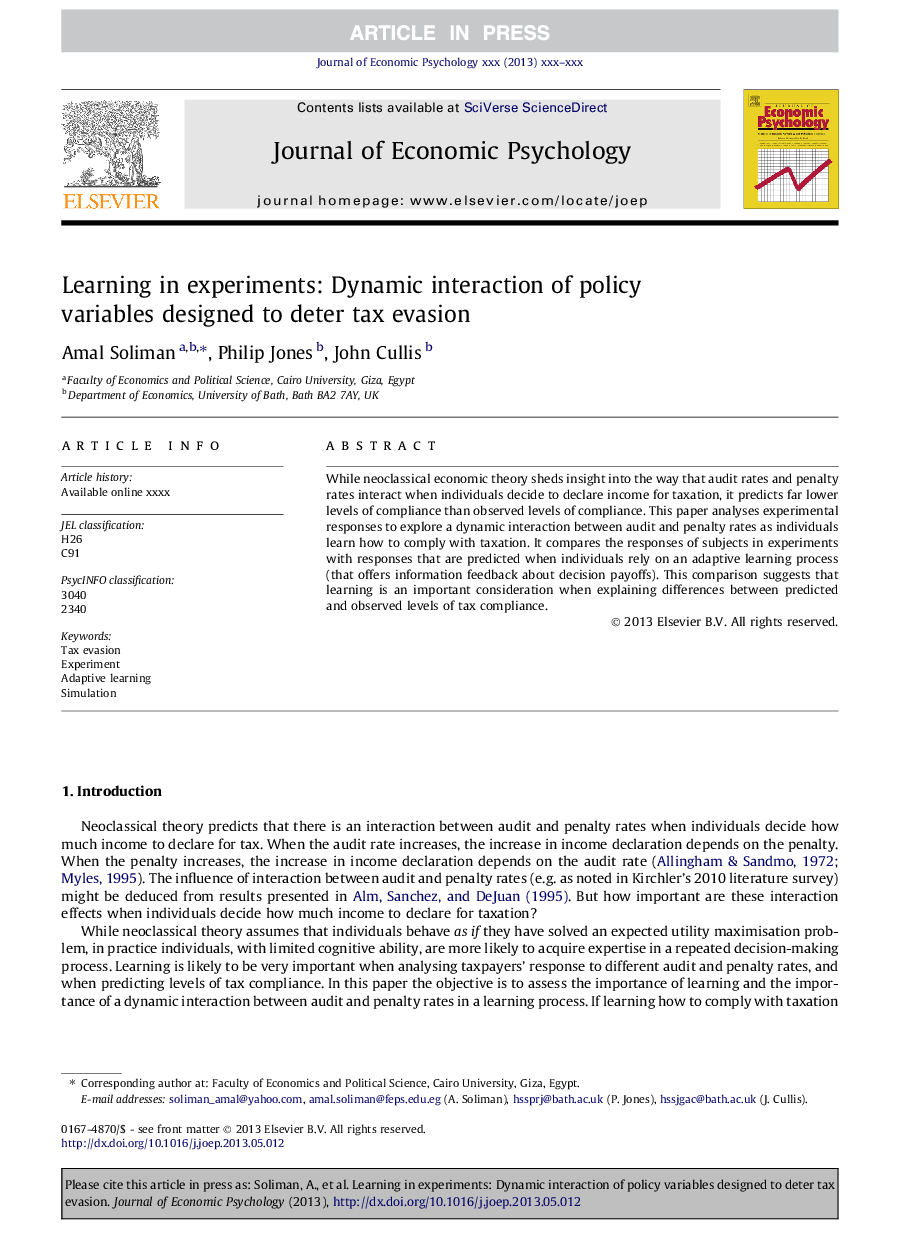| Article ID | Journal | Published Year | Pages | File Type |
|---|---|---|---|---|
| 7244876 | Journal of Economic Psychology | 2014 | 12 Pages |
Abstract
While neoclassical economic theory sheds insight into the way that audit rates and penalty rates interact when individuals decide to declare income for taxation, it predicts far lower levels of compliance than observed levels of compliance. This paper analyses experimental responses to explore a dynamic interaction between audit and penalty rates as individuals learn how to comply with taxation. It compares the responses of subjects in experiments with responses that are predicted when individuals rely on an adaptive learning process (that offers information feedback about decision payoffs). This comparison suggests that learning is an important consideration when explaining differences between predicted and observed levels of tax compliance.
Related Topics
Social Sciences and Humanities
Business, Management and Accounting
Marketing
Authors
Amal Soliman, Philip Jones, John Cullis,
